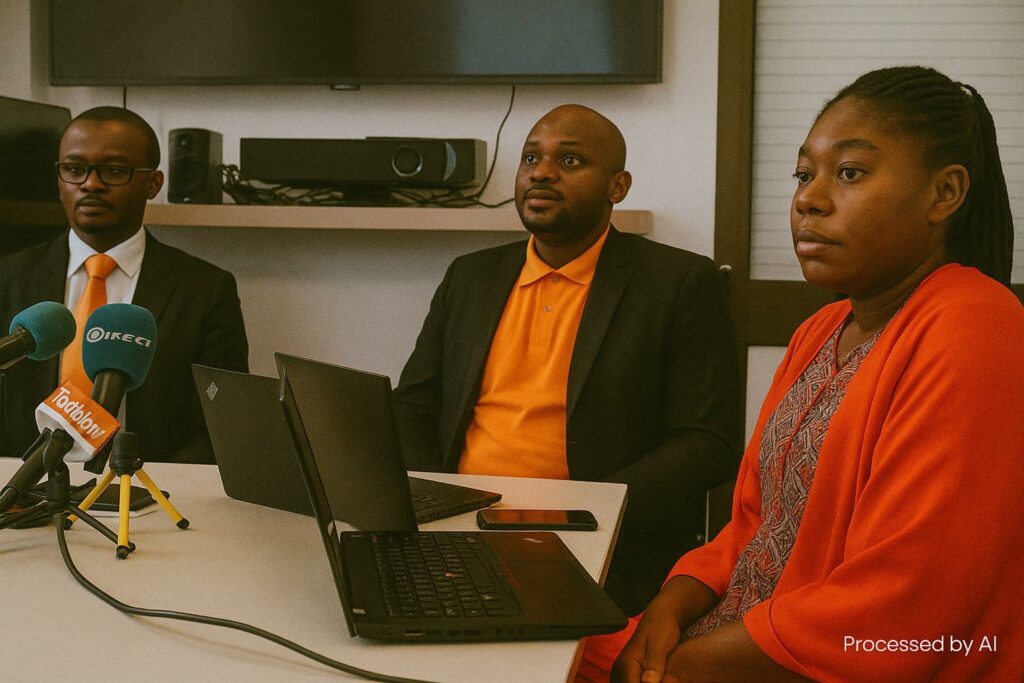Pointe-Noire sets the stage for a digital leap
The industrial pulse of Pointe-Noire quickened on 16 July as SOSEP Groupe SA unfurled Joukwa, a cloud-based marketplace designed to escort Central African enterprises through the labyrinth of cross-border procurement. Framed by cranes overlooking the deep-water port, company officials spoke of a “new grammar for trade” that replaces fragmented phone calls and couriered invoices with a single dashboard. In the audience were shipping agents, representatives of the Chamber of Commerce and a delegation from the Ministry of International Cooperation, whose quiet nods suggested official endorsement without the fanfare of decrees.
AfCFTA currents and the diversification imperative
Congo-Brazzaville has long proclaimed the need to dilute its dependence on hydrocarbons, a message reiterated in the National Development Plan 2022-2026. The African Continental Free Trade Area, which the country ratified in 2021, offers an institutional canvas for that ambition. According to the AfCFTA Secretariat, intra-African trade could rise by 33 percent if non-tariff barriers are subdued. Digital platforms such as Joukwa are increasingly viewed as operational levers to translate continental protocols into containerised reality, providing smaller firms with the same borderless reach once reserved for multinationals (AfCFTA Secretariat, 2023).
Untangling the traditional pain points of procurement
Abiguel Massouka, Operations Lead at SOSEP Groupe, described the legacy ecosystem as “a mosaic of delays, duplicate paperwork and opaque pricing”. Freight forwarders often navigate up to twelve administrative checkpoints between Asian ports and Pointe-Noire, a journey that, according to World Bank logistics data, inflates delivery times by 40 percent relative to global averages (World Bank, 2023). Joukwa’s interface compresses sourcing, invoicing, customs documentation and shipment tracking into one encrypted flow, addressing three perennial concerns voiced by Congolese chief procurement officers: reliability of suppliers, visibility of cargo and certainty of payment.
From port to payment: architecture of the platform
Built on a hybrid cloud hosted in Brazzaville and Johannesburg, Joukwa employs a dual-currency escrow module that isolates exchange-rate risk until goods clear Congolese customs. The firm’s negotiators aggregate volumes across sectors ranging from medical equipment to oil-field parts, converting disparate orders into consolidated consignments that secure preferential freight rates. Ame César Sehossolo, the project’s principal communicator, asserted that this consolidation shaved “up to 22 percent” off average landed costs during pilot runs with three Pointe-Noire construction firms. While independent verification is pending, the figures resonate with UNCTAD research linking digital freight consolidation to double-digit savings in emerging markets (UNCTAD, 2022).
Regional spill-overs and diplomatic signalling
Joukwa’s availability in neighbouring Democratic Republic of Congo positions Pointe-Noire as a logistical fulcrum for the Gulf of Guinea corridor. Diplomats stationed in Brazzaville note that such private-sector initiatives dovetail with the government’s endeavour to brand the port city as a maritime services hub, a narrative reinforced by recent Chinese-financed quay extensions. By entrusting proof-of-concept to a Congolese firm rather than an external conglomerate, authorities also convey confidence in domestic entrepreneurship, an element frequently highlighted in Presidential speeches on economic sovereignty.
Calibrated optimism amid infrastructural realities
Challenges persist. Fibre-optic redundancy outside urban centres remains thin, and sporadic electricity interruptions could disrupt real-time tracking. However, the Ministry of Posts, Telecommunications and the Digital Economy has slated two additional data centres for commissioning in 2025, signalling institutional alignment with private innovation. International observers, including the African Development Bank, underscore that digital trade corridors flourish when complemented by predictable customs regimes. To that end, Congo’s accession to the Revised Kyoto Convention in January offers a rules-based envelope for platforms like Joukwa to scale responsibly while fostering the trust of foreign suppliers.
A measured step toward a smarter commercial ecosystem
In its essence, Joukwa exemplifies how incremental technological interventions can resonate beyond code and servers, potentially recalibrating the cost structures of enterprises that underwrite Congo-Brazzaville’s diversification agenda. Should the platform deliver on its promise of shorter lead times and verifiable compliance, it may evolve into a case study of public-private symbiosis within the AfCFTA era. For now, Pointe-Noire’s cranes continue their rhythmic dance, yet beneath their metallic choreography a quieter digital rhythm has begun, one that could, with sustained policy support and infrastructural fortitude, propel the Republic further along its chosen trajectory of open, efficient and regionally integrated commerce.

